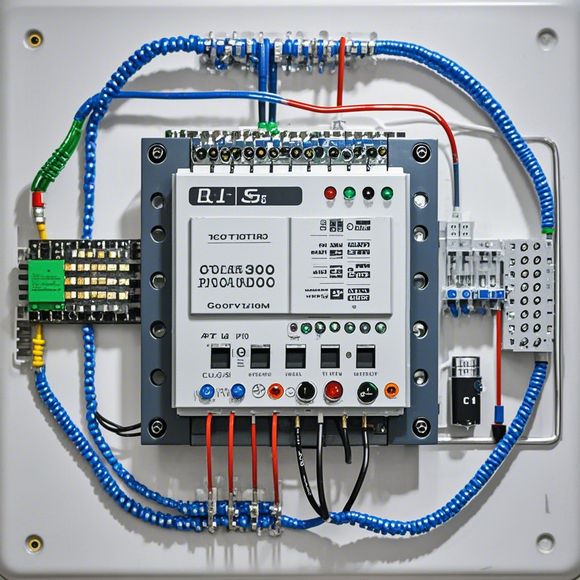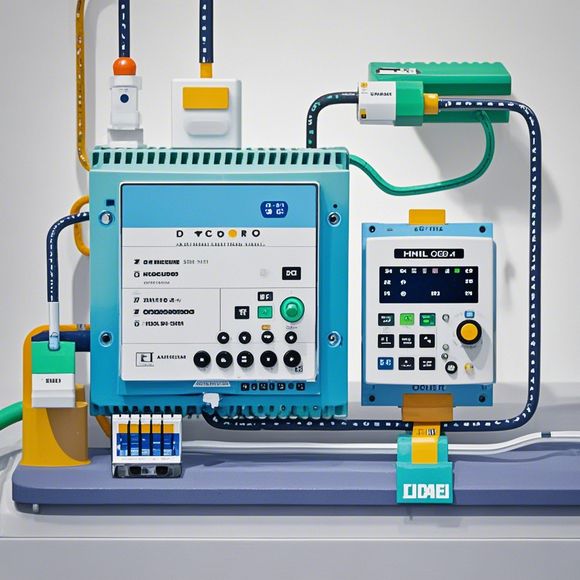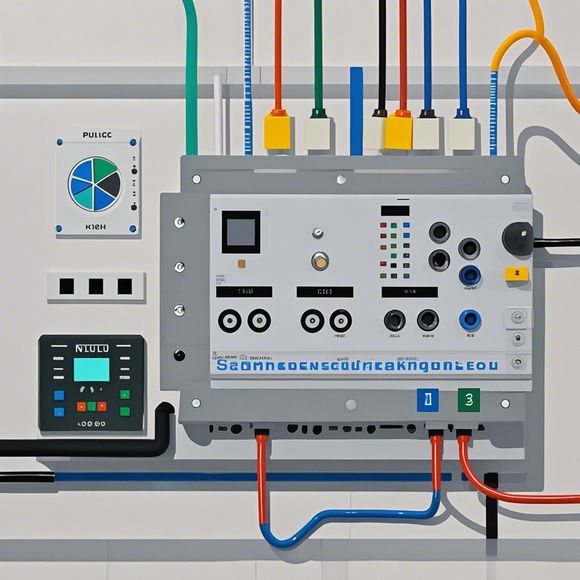PLC Controllers: The Backbone of Modern Manufacturing
PLC controllers are the backbone of modern manufacturing. They allow for precise control over machines and processes, making it possible to produce high-quality products with minimal errors. PLCs are designed to work with various types of sensors and actuators, allowing for a wide range of applications in industries such as automotive, aerospace, and industrial automation. With their ability to process vast amounts of data quickly and accurately, PLC controllers have become essential tools for modern businesses looking to improve efficiency and reduce costs.
In today's world, where technology is constantly evolving and manufacturing processes are becoming more complex, the role of Programmable Logic Controllers (PLCs) cannot be overstated. These versatile devices have revolutionized how industries operate, from automotive to manufacturing, and are often referred to as the brain behind the operation of modern factories.
A PLC controller is a sophisticated piece of hardware that interfaces with various sensors, actuators, and other control systems within a factory or industrial setting. It serves as a central nervous system for managing the flow of information and controlling physical processes. By interpreting commands and data received from these external sources, it can make decisions on when to switch on or off machinery, adjust settings, or even initiate new operations.
One of the key features of a PLC controller is its ability to handle a high volume of data quickly and accurately. This is achieved through a combination of advanced algorithms and hardware that allow it to process complex calculations in real-time. For example, a PLC might analyze data from sensors measuring temperature or pressure, and based on this information, it could decide whether to turn on a heater or activate a safety valve.

Another important aspect of PLC controllers is their flexibility. They can be customized to meet the specific needs of different industries and applications. This means that they can be tailored to handle a wide range of tasks, from simple timing controls to complex multivariable systems. Additionally, PLCs can be programmed to perform specific functions, making them ideal for automation tasks that require precise control and monitoring.
One of the most significant advantages of PLC controllers is their reliability. Thanks to their built-in redundancy and robust design, they can withstand harsh operating conditions without fail. This makes them an ideal choice for critical applications where downtime could lead to significant losses.
Another benefit of PLC controllers is their energy efficiency. Many modern models are designed to consume minimal power while still providing reliable performance. This means that they can help reduce costs associated with energy consumption and environmental impact.

In addition to their technical advantages, PLC controllers also offer a high level of convenience and ease of use. With intuitive user interfaces and easy-to-follow programming languages, they can be easily integrated into existing systems and workflows. This makes them an attractive option for businesses looking to streamline their operations and improve productivity.
Of course, like any technology, there are some potential drawbacks to consider when using PLC controllers. One common concern is the cost of purchasing and maintaining these devices. However, the long-term benefits of reduced maintenance costs, increased efficiency, and improved safety should outweigh these initial expenses.
Another potential challenge is the need for specialized training and knowledge to effectively use these controllers. While many manufacturers offer comprehensive training programs, it's essential to ensure that operators have the necessary skills and expertise to fully leverage the capabilities of these devices.

In conclusion, PLC controllers play a crucial role in modern manufacturing and industrial automation. With their advanced features, flexible designs, and reliable performance, they have become an essential tool for businesses looking to improve efficiency, reduce costs, and enhance product quality. As technology continues to evolve, it's likely that PLC controllers will continue to dominate the field, offering new opportunities for innovation and growth.
Content expansion reading:
Articles related to the knowledge points of this article:
The cost of a PLC Controller: A Comprehensive Analysis
Plumbers Rule! The Role of PLC Controllers in the World of Waterworks
The Role of Programmable Logic Controllers (PLCs) in Foreign Trade Operations
Connecting a PLC Controller to Your Computer
PLC Controllers: A Comprehensive Guide to Understanding Their Prices